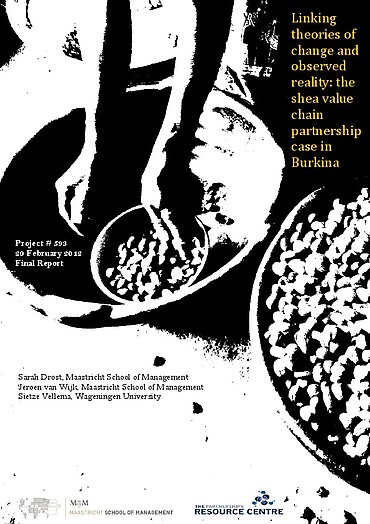Abstract
This shea case study is part of a larger Partnerships Resource Centre (PrC) project elaborated in tandem with two Dutch non-governmental organisations (NGOs); ICCO and Oxfam Novib. The endeavour of this ‘action research’ project is to combine the expert knowledge of development practitioners and the scholarly knowledge of researchers for capturing lessons in the setup and operations of value chain partnerships (VCPs). Partnerships can be defined as voluntary, collaborative arrangements between actors from two or more domains of society, i.e. state, market and/or civil society, which have an institutionalized, yet non-hierarchical structure and strive for a sustainability goal (Glasbergen et al., 2007). The typical goal of value chain partnerships is smallholder inclusion into value chains by removing or mitigating institutional barriers to value chain upgrading. The project involves a multiple case study of three relevant value chain partnership cases (two ICCO, one Oxfam Novib) and has two related objectives. First, it aims to support the value chain partners in strengthening their Theories of Change (ToC) that they have developed with respect to the their value chain partnership case. Second, the case study offers an opportunity to further develop a theory-laden partnership evaluation approach.
